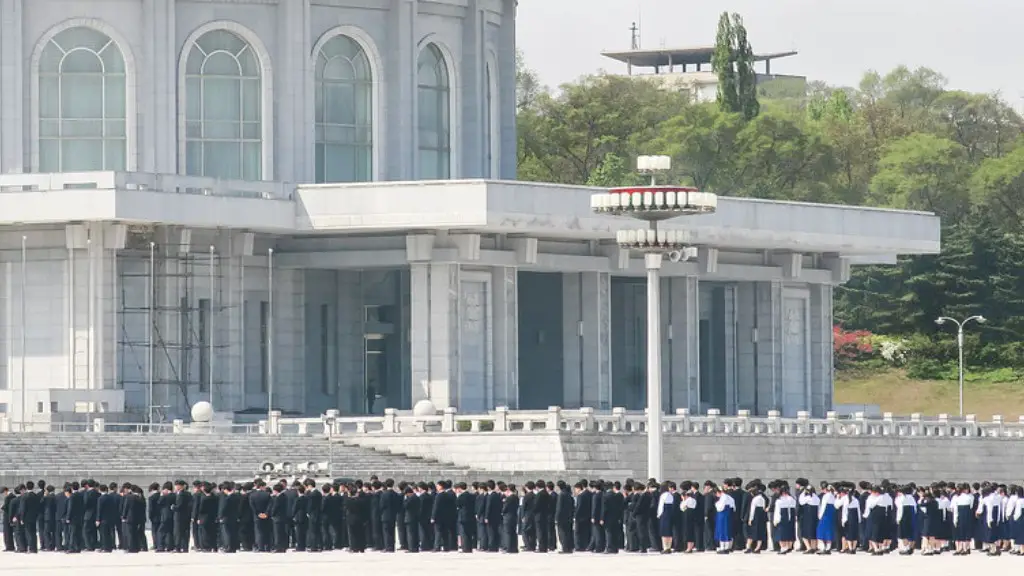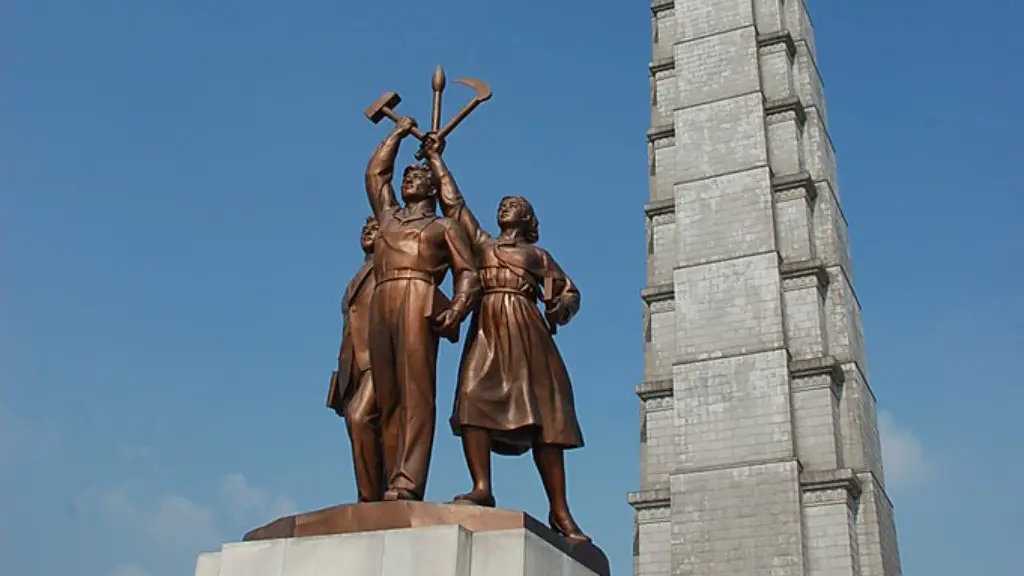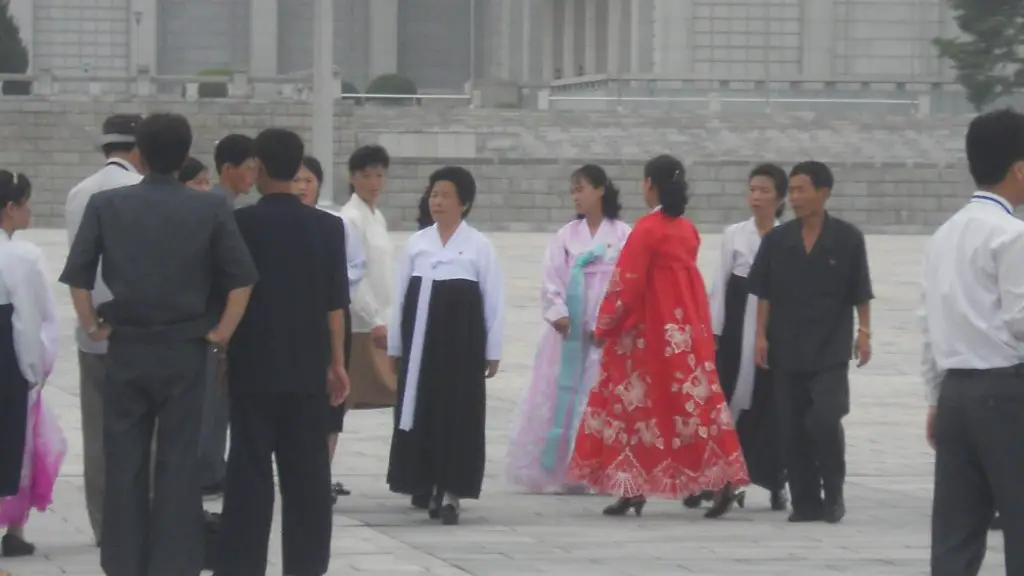What Happens If North Korea Nukes Us?
With tensions between the United States and North Korea reaching an all-time high, many are asking the question: what happens if North Korea were to launch a nuclear attack against the United States? The potential impacts of this action include physical destruction, human suffering, global financial disturbance and geopolitical consequences. In this article, we explore North Korea’s nuclear capabilities, the potential destruction of a nuclear attack, the impacts a nuclear detonation could have on the global financial system, and the consequences North Korea might face if they were to launch such an attack.
North Korea’s Nuclear Capabilities
North Korea has been developing nuclear weapons since the early 1990s and is believed to possess a variety of nuclear-capable missiles. Despite having extensive stocks of plutonium and fissile material, estimates indicate that North Korea only has around twenty nuclear warheads. This means that if North Korea were to launch a nuclear attack on the United States, it would likely only be able to wreak destruction on a small portion of the country. North Korea also has a limited capacity to actually launch a nuclear weapon at targets in U.S. territory; as such, any attack would likely target U.S. allies in the region, such as South Korea or Japan.
Potential Destruction Of A Nuclear Attack
The immediate effects of a nuclear attack would depend on the size and type of nuclear weapon used. If a large, energy-enhanced nuclear weapon were detonated in a targeted area, there could be an extreme loss of life and massive destruction. A nuclear attack could also induce seismic activities, resulting in massive flooding due to the shockwaves, as well as long-term environmental issues such as radiation contamination.
Impacts On The Global Financial System
Although the physical destruction from a nuclear attack would be severe, its impact on the global financial system could be even more devastating. It is likely that the attack would result in a recession, given its potential to disrupt the global supply chain and lead to destabilized economies in the region. To make matters worse, North Korea conducts its nuclear activities with relative secrecy; as such, such an attack could come as both a surprise and a shock to global markets.
Consequences Of A Nuclear Attack
In the event that North Korea were to launch a nuclear attack, the repercussions would be global in nature. There would be international condemnation, and likely economic and military retaliation from the United States, its allies and the United Nations. This could potentially lead to all-out war, which would have catastrophic consequences for the region and beyond.
The Possibility Of War
If the United States or its allies were to launch a retaliatory attack against North Korea, the country could find itself in a full-blown war. This could result in various human rights abuses, and the displacement of thousands of North Korean civilians. Given the militarized nature of North Korea, it is also likely that such a conflict could escalate quickly and dangerously, resulting in even more destruction and suffering.
The Risk Of Nuclear Proliferation
An attack by North Korea could also lead to further nuclear proliferation, given its potential to spark a nuclear arms race in the region. Countries such as Japan, South Korea and China all maintain nuclear capacities, and they could be drawn into a conflict with North Korea if it were to launch an attack. This could, in turn, lead to the spread of nuclear capabilities even further, resulting in a more volatile and dangerous situation.
The Human Cost
The human cost of a nuclear attack by North Korea would likely be devastating. The possibility of thousands of deaths and severe physical and psychological trauma cannot be ignored. Many thousands would suffer from long-term health problems and lifelong physical and psychological distress that would have a profound impact on their quality of life.
The Political Fallout
A nuclear attack by North Korea could also have severe political implications, both on the international stage and within North Korea itself. Given the country’s political isolation, an attack could result in even greater international isolation and diplomatic sanctions. North Korea could also face internal pressure; its citizens could face further human rights violations and repression if their government were implicated in the attack.
Confronting North Korea
The best way to confront North Korea is through diplomacy, not force. Pressure should be maintained on North Korea to ensure that it discontinues its nuclear weapons program, but military action should be a last resort. If diplomatic talks are unsuccessful, it is important that the international community commit to maintaining a unified front and pursuing a nonviolent resolution to the situation.
Economic Pressure
Another way to confront North Korea is to use economic pressure. Countries should impose targeted economic sanctions that are specifically designed to disrupt North Korea’s nuclear program and limit its access to materials and technologies needed for the program. The goal should be to weaken North Korea’s economic power so as to reduce its ability to develop and launch nuclear weapons.
Multilateral Cooperation
Given the regional implications of a nuclear attack, it is important that the international community take a unified approach to confronting North Korea. Countries should work together to create a multilateral strategy to contain the threat, and countries in the region should cooperate with one another to ensure effective communication and intelligence sharing.
International Monitoring
The international community can also support efforts to monitor and verify North Korea’s nuclear activities. This can be done through international inspections and monitoring missions, as well as through access to satellite imagery and other forms of intelligence. Such monitoring will help to ensure that North Korea is not developing nuclear weapons or taking other actions that could pose a threat.



